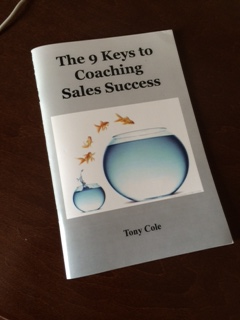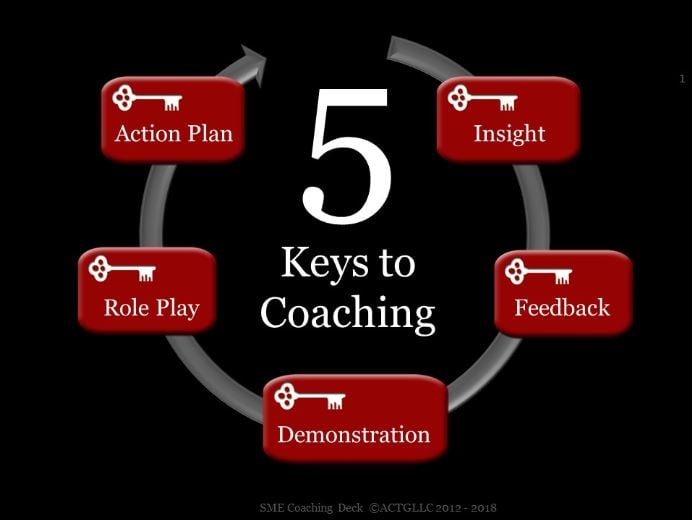Selling is hard. Especially with the easy access prospects have to critical decision-making information. However, the struggle often begins with how and what we think.
In this blog, Tony discusses the personal beliefs and myths that often get in the way of a sales persons ability to see greater overall success.

There are no secrets in sales! The internet and the digital world have pretty much eliminated any secrets to success in sales, and how to do almost anything else. All you need is a mobile device with access to the internet, and you can find just about anything you want to know.
With facts and strategies being so readily available, why do most salespeople (about 80%) still struggle to be successful? A lot of it has to do with beliefs and myths. What about you? Do you accept any outdated myths as facts? Some may include:
- People only use 10% of their brains
- There is a dark side of the moon
- Behavior is affected by the full moon
- Sugar makes children hyperactive
- Lightning never strikes the same place twice
So what is the best method to move past the myth and see success? It starts by getting to the root cause of the problem.
As many of you know, Anthony Cole Training Group has specialized in providing specialized sales growth solutions for banking, investment advisory, and insurance. Primarily, those growth solutions include:
- Hiring better salespeople
- Executing an effective sales process
- Sales Management training
During our years of developing and delivering content to hundreds of sales organizations, we have used the #1 sales assessment tool on the planet. Not only is the accuracy of the sales inventory assessment tool unbelievable, but the Sales Effectiveness and Impact Analysis have been a game-changer. One of the most compelling segments revealed in the assessments is about personal beliefs. Each of us has personal beliefs that dictate our behaviors and thus determines our outcomes. This holds true for all areas - sales, sales management, and sales leadership. Whether aware or not, we all have beliefs about what we do that impacts our opportunity for success.
5 MYTHS MOST SALESPEOPLE BELIEVE
Here are the myths that many salespeople believe to be fact:
- People buy from people they like. Now, you may have purchased something from someone that you like, but that didn’t drive your decision. What drove your decision was your confidence and trust in the person, the product, and the company behind the product.
- People make buying decisions based on price. Staying with you and your purchasing habits for a second, let’s talk automobiles. According to MotorTrend, the cheapest car available today is the Chevrolet Spark with a base price of $14,095. If you own one, then you are a rare breed. The volume of sales of this vehicle in 2019 was only .75% of all vehicles sold in the U.S. If people only bought the lowest priced item, this would not be the case.
- Closing skills are the most important. This might be surprising to you, but in the last three studies I conducted in the banking segment, the top 33% of bankers, wealth managers, and private bankers who severely lack closing skills still led their teams in sales.
- The customer is always right. That is not the case. Due to information access, they're more educated regarding product knowledge, availability, options, and pricing but to assume they are right about everything is incorrect. However, this in and of itself is not the problem. The problem is this; if salespeople believe this, then they will never be gutsy enough to execute the challenger sale, the value-based selling system, the SPIN System, or our Effective Selling System.
- Prospects are always honest. 95% of respondents in all of our studies believe prospects are honest. That is until we conduct our first meeting with our clients and go through the process that buyers go through when executing their buying process. If a prospect were completely honest, they would tell the insurance agent who cold-called them that they got a renewal that is too high, and they want some competitive bids to keep the incumbent honest. We all know that doesn’t happen!
TRAINING ALONE DOES NOT GET LASTING RESULTS
Time and again, companies spend money on sales training to introduce them to a new:
- sales language
- sales approach
- prospecting method
- time management process
- cross-selling strategy
What happens is that the company spends a lot of time, money, and effort, and yet, at the end of the event or training, they cannot point to any discernable difference in outcomes. Behaviors stay the same, problems that existed before are still there, effort changes for a while but soon returns to pre-training levels and salespeople still blame the economy, the company, or the competition for lack of success.
Top people are still performing at the top, people in the middle of your sales bell curve are maintaining, and your bottom 20% are not performing any better than the bottom 20% you had the year before. Why? Because the root problems associated with these beliefs were never uncovered.
For you, your team, and your organization to see greater success, it's critical to identify, address, and build strategies to overcome the myths or beliefs that are hindering personal growth.











